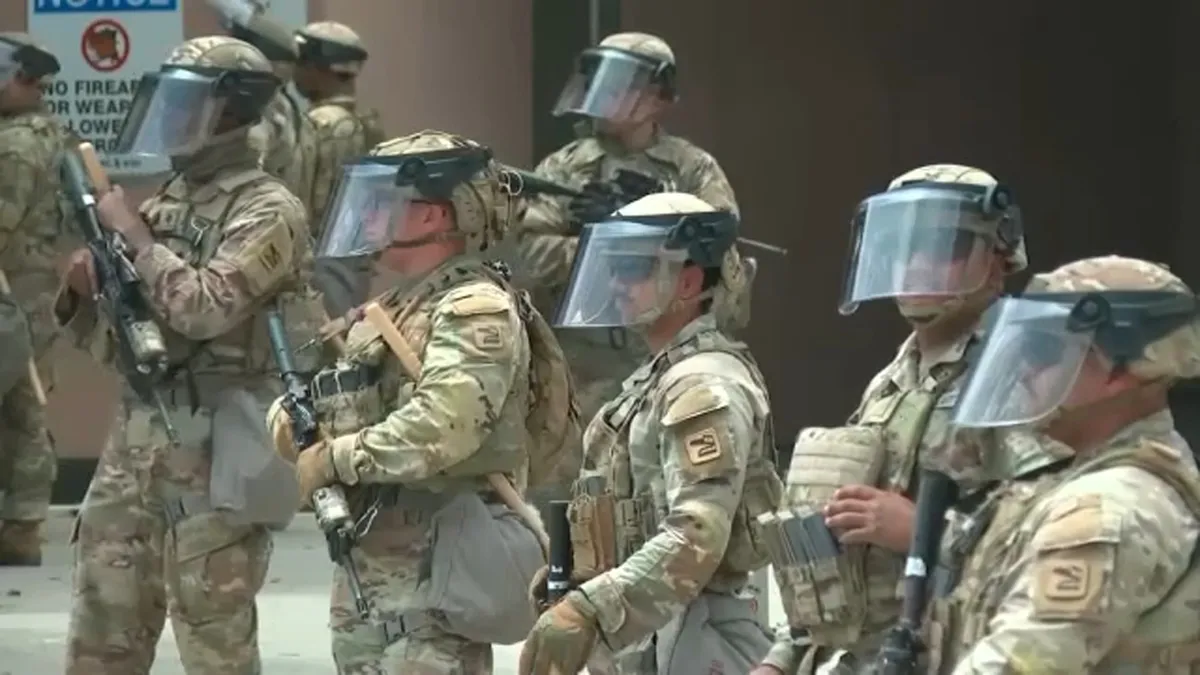
In a major development, the military presence in Southern California is set to be reduced by nearly half. The Pentagon has announced that 2,000 National Guardsmen will be withdrawn from their current mission in Los Angeles. This decision follows the deployment of approximately 4,700 California National Guardsmen and active-duty Marines, who were sent to the region in early June to protect federal buildings and personnel amid protests concerning Immigration and Customs Enforcement (ICE) operations.
Thanks to the efforts of our dedicated troops, the level of lawlessness in Los Angeles has begun to subside. In a statement provided to ABC News, Chief Pentagon Spokesman Sean Parnell confirmed that the Secretary of Defense has ordered the release of 2,000 California National Guardsmen from their federal protection mission. These Guardsmen, part of the 79th Infantry Brigade Combat Team (IBCT), were specifically trained to provide perimeter security during ICE operations, although they were not engaged in law enforcement duties.
The deployment of federal troops has raised several legal questions, particularly concerning the administration's potential use of emergency powers under the Insurrection Act. This act could theoretically empower the military to conduct law enforcement within the U.S.—a role typically prohibited except in rare circumstances. It's important to note that while the Marines were primarily tasked with protecting federal buildings, the National Guardsmen had a more nuanced role in supporting law enforcement operations.
With California now in the peak of its wildfire season, concerns have been raised regarding the impact of troop deployment on state fire prevention efforts. Recently, the top military commander overseeing the troops in Los Angeles, U.S. Northern Command head Gen. Gregory Guillot, submitted a request to Defense Secretary Pete Hegseth to release 200 National Guard troops for their original purpose: assisting in wildfire fighting duties. This request highlights the ongoing struggle to balance military resources during critical times.
Governor Gavin Newsom has also expressed concerns about the understaffing of the National Guard due to the ongoing deployment in Los Angeles, emphasizing the need for adequate resources to combat potential disasters during this critical season.
The situation remains fluid as officials assess the implications of troop withdrawal and the overall safety and security of Los Angeles and the surrounding areas. The military's dual role in both law enforcement and emergency response will continue to be scrutinized as developments unfold.
The Associated Press contributed to this report, providing further context to the evolving situation in Southern California.